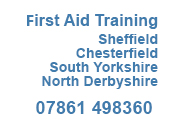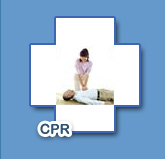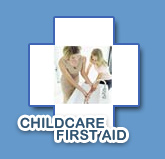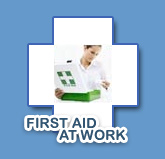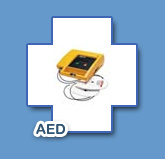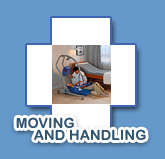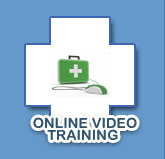News Snippets
UK and European Resuscitation Council changes set for October 2020 have been postponed until 2021.
This is because the medical professionals creating the 2020 guidelines are all involved in treating and researching the Covid 19/Corona virus. As such the current 2015 rules will still apply for now.
April 2020
CPR update for Covid 19/Corona Virus
The following is direct from the UK Resus website for anyone who is performing CPR/defibrillation in an out-of-hospital setting. The link is www.resus.org.uk/media/statements/resuscitation-council-uk-statements-on-covid-19-coronavirus-cpr-and-resuscitation/covid-community
Whenever CPR is carried out, particularly on an unknown victim, there is some risk of cross-infection, associated particularly with giving rescue breaths. Normally, this risk is very small and is set against the inevitability that a person in cardiac arrest will die if no assistance is given. The first things to do are shout for help and dial 999.
Because of the heightened awareness of the possibility that the victim may have COVID-19, Resuscitation Council UK offers this advice:
-
Recognise cardiac arrest by looking for the absence of signs of life and the absence of normal breathing. Do not listen or feel for breathing by placing your ear and cheek close to the patient’s mouth. If you are in any doubt about confirming cardiac arrest, the default position is to start chest compressions until help arrives.
-
Make sure an ambulance is on its way. If COVID 19 is suspected, tell them when you call 999.
-
If there is a perceived risk of infection, rescuers should place a cloth/towel over the victims mouth and nose and attempt compression only CPR and early defibrillation until the ambulance (or advanced care team) arrives. Put hands together in the middle of the chest and push hard and fast.
-
Early use of a defibrillator significantly increases the person’s chances of survival and does not increase risk of infection.
-
If the rescuer has access to personal protective equipment (PPE) (e.g. FFP3 face mask, disposable gloves, eye protection), these should be worn.
-
After performing compression-only CPR, all rescuers should wash their hands thoroughly with soap and water; alcohol-based hand gel is a convenient alternative. They should also seek advice from the NHS 111 coronavirus advice service or medical adviser.
Paediatric advice
We are aware that paediatric cardiac arrest is unlikely to be caused by a cardiac problem and is more likely to be a respiratory one, making ventilations crucial to the child’s chances of survival. However, for those not trained in paediatric resuscitation, the most important thing is to act quickly to ensure the child gets the treatment they need in the critical situation.
For out-of-hospital cardiac arrest, the importance of calling an ambulance and taking immediate action cannot be stressed highly enough. If a child is not breathing normally and no actions are taken, their heart will stop and full cardiac arrest will occur. Therefore, if there is any doubt about what to do, this statement should be used.
It is likely that the child/infant having an out-of-hospital cardiac arrest will be known to you. We accept that doing rescue breaths will increase the risk of transmitting the COVID-19 virus, either to the rescuer or the child/infant. However, this risk is small compared to the risk of taking no action as this will result in certain cardiac arrest and the death of the child.
June 2020
